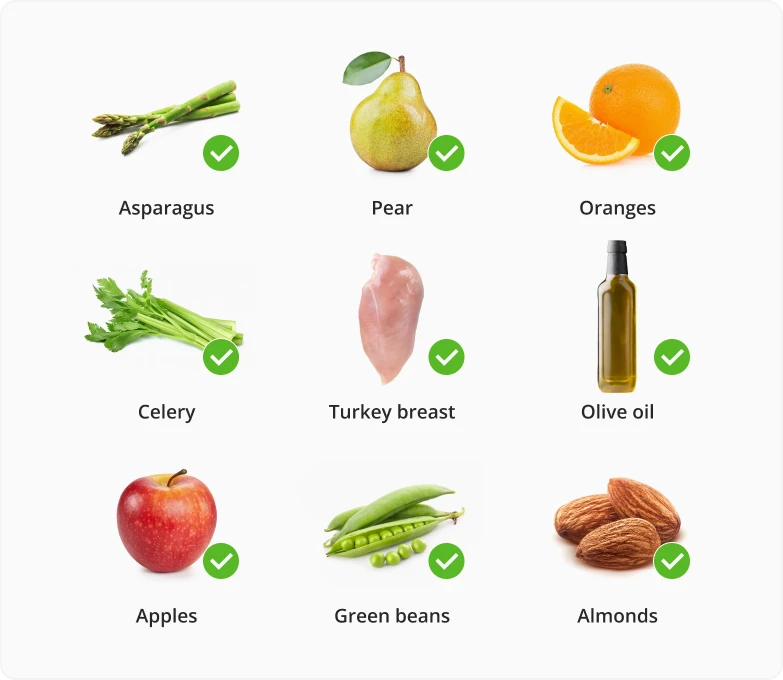South Beach Diet avocado: This seemingly simple combination unlocks a world of possibilities for weight management and healthy eating. The South Beach Diet, known for its phased approach to carbohydrate restriction, finds a surprisingly effective ally in the creamy goodness of the avocado. This guide explores how avocados seamlessly integrate into the diet’s principles, offering a delicious and nutritious way to achieve your weight loss goals while enjoying the rich flavors and health benefits of this unique fruit.
We’ll delve into the nutritional profile of avocados, comparing them to other permitted fats within the South Beach Diet framework. We’ll examine their role in satiety and blood sugar regulation, and provide practical tips for incorporating avocados into your daily meals without derailing your progress. From delicious recipes to addressing common misconceptions, this guide aims to equip you with the knowledge and inspiration to enjoy avocados as a vital part of your South Beach Diet journey.
Avocado’s Role in Weight Management (South Beach Context)
Avocados, often perceived as high in fat, surprisingly play a beneficial role in weight management, particularly within the framework of the South Beach Diet. This diet emphasizes healthy fats and limits refined carbohydrates, creating an environment where avocados can thrive. Their unique nutritional profile supports satiety, helps regulate blood sugar, and contributes to overall metabolic health, all crucial aspects of successful weight loss.
Avocados and Healthy Fats in Weight Loss
The South Beach Diet focuses on incorporating healthy fats into the diet, and avocados are a prime example. Unlike unhealthy saturated and trans fats, the monounsaturated fats in avocados are associated with improved cholesterol levels and reduced risk of heart disease. These fats also contribute to feelings of fullness, reducing overall calorie intake. The fiber content in avocados further enhances this effect, slowing digestion and promoting a sustained sense of satiety. This is crucial for weight management, as it helps prevent overeating and cravings.
Avocado’s Contribution to Satiety and Appetite Regulation on the South Beach Diet
Avocados are remarkably effective at promoting satiety due to their high fiber and fat content. Fiber adds bulk to the diet, increasing the feeling of fullness. The healthy fats in avocados are digested more slowly than carbohydrates, leading to a prolonged feeling of satiation. This sustained satiety is particularly beneficial on the South Beach Diet, which emphasizes controlling blood sugar levels and preventing spikes that can trigger cravings and overeating. A study published in the *Nutrition Journal* found that participants who consumed avocados reported increased feelings of fullness compared to those who did not. This effect is further enhanced by the presence of various nutrients and phytochemicals in avocados, which interact with hormones regulating appetite.
Glycemic Index Comparison: Avocados and Other South Beach Diet Foods
The glycemic index (GI) measures how quickly a carbohydrate-containing food raises blood sugar levels. Avocados have a very low GI, typically below 15. This is significantly lower than many other foods, including many fruits and refined carbohydrates often restricted on the South Beach Diet. For example, a medium-sized apple has a GI of around 36, while white bread has a GI of 70. The low GI of avocados aligns perfectly with the South Beach Diet’s focus on minimizing blood sugar spikes and promoting stable energy levels. This helps prevent insulin resistance and promotes a more efficient use of energy.
Visual Representation of Avocado’s Impact on Blood Sugar Levels
Imagine a graph charting blood sugar levels over time. A line representing the consumption of a high-GI food, like white bread, would show a sharp spike immediately after consumption, followed by a rapid drop, leading to a feeling of hunger and potential energy crashes. In contrast, a line representing avocado consumption would show a gradual, minimal increase in blood sugar levels, followed by a slow, steady decline. This gentle curve illustrates the sustained energy and reduced hunger that avocados provide, aligning perfectly with the South Beach Diet’s principles. The graph visually represents the sustained energy and reduced hunger, a key advantage in managing weight effectively.
Potential Benefits and Drawbacks of Avocado Consumption on the South Beach Diet
Avocados, often lauded for their creamy texture and rich flavor, present a unique consideration within the framework of the South Beach Diet. Their high-fat content, while potentially beneficial in certain aspects, also requires careful management to align with the diet’s principles of promoting healthy weight loss and metabolic function. This section explores the potential advantages and disadvantages of incorporating avocados into a South Beach Diet plan.
The South Beach Diet emphasizes healthy fats, and avocados fit this profile. Their monounsaturated fats, particularly oleic acid, are associated with numerous health benefits. However, their high calorie density necessitates mindful portion control to prevent exceeding daily caloric targets. This careful consideration is crucial for achieving and maintaining weight loss goals.
Avocado’s Health Benefits within the South Beach Diet
Avocados offer a range of nutritional benefits that complement the South Beach Diet’s emphasis on healthy fats and nutrient-rich foods. Their high fiber content promotes satiety, helping to manage hunger and prevent overeating – a key element in weight management. Furthermore, avocados are a good source of potassium, which plays a role in blood pressure regulation, a factor often considered in weight management strategies. The presence of various vitamins and minerals, such as vitamin K, vitamin C, and folate, contributes to overall health and well-being. These nutrients support healthy metabolic processes and contribute to a balanced diet. In the context of the South Beach Diet, which focuses on whole, unprocessed foods, avocados offer a valuable source of these vital nutrients.
Potential Drawbacks of Avocado Consumption on the South Beach Diet
Despite their nutritional value, avocados’ high calorie and fat content present a potential drawback for individuals following the South Beach Diet. A single medium avocado can contain approximately 322 calories and nearly 30 grams of fat. While these fats are largely unsaturated and beneficial, consuming excessive amounts can easily lead to exceeding daily caloric intake, hindering weight loss progress. Therefore, portion control is crucial when incorporating avocados into a South Beach Diet plan. Careful monitoring of overall caloric intake and mindful selection of other meal components are essential to prevent any negative impact on weight management. For example, a person aiming for a 1500-calorie diet might need to carefully consider how many calories are already accounted for by the inclusion of an avocado.
Nutritional Profile Comparison: Avocados vs. Other High-Fat Fruits/Vegetables
To better understand the place of avocados within the South Beach Diet, comparing their nutritional profile to other high-fat fruits and vegetables is beneficial. While avocados are significantly higher in calories and fat than most other fruits and vegetables, they also offer a higher concentration of beneficial nutrients like fiber and potassium. For instance, a serving of olives, another high-fat option, offers a different nutrient profile, typically containing less fiber and potassium than an equivalent serving of avocado. Similarly, nuts and seeds, while also high in healthy fats, differ in their vitamin and mineral content compared to avocados. The key lies in moderation and balanced consumption.
Pros and Cons of Regular Avocado Intake on the South Beach Diet
To summarize the discussion, the following points highlight the advantages and disadvantages of incorporating avocados into a South Beach Diet plan:
- Pros: High in healthy monounsaturated fats; good source of fiber, potassium, and various vitamins and minerals; promotes satiety; supports healthy metabolic function.
- Cons: High in calories and fat; requires careful portion control to avoid exceeding daily caloric targets; may not be suitable for individuals with very restrictive calorie goals.
Final Thoughts
Incorporating avocados into the South Beach Diet offers a unique opportunity to enhance both the nutritional value and the palatability of your meals. By understanding their nutritional profile, their role in satiety, and employing mindful portion control, you can harness the power of avocados to support your weight loss goals and overall well-being. Remember, a balanced approach, combined with mindful eating habits, is key to success on the South Beach Diet, and avocados can be a delicious and effective component of that strategy.




